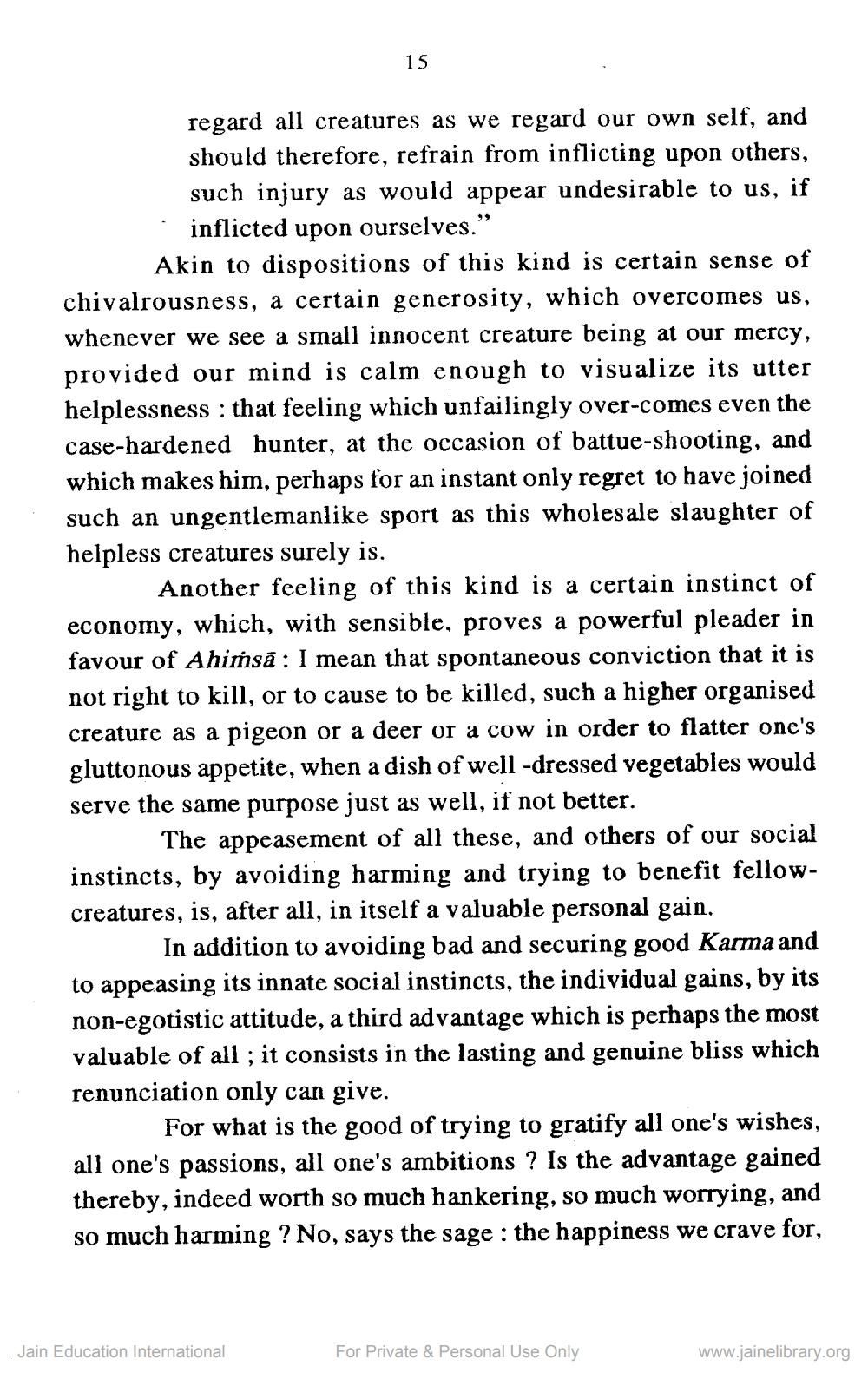________________
15
regard all creatures as we regard our own self, and should therefore, refrain from inflicting upon others, such injury as would appear undesirable to us, if inflicted upon ourselves."
Akin to dispositions of this kind is certain sense of chivalrousness, a certain generosity, which overcomes us, whenever we see a small innocent creature being at our mercy, provided our mind is calm enough to visualize its utter helplessness that feeling which unfailingly over-comes even the case-hardened hunter, at the occasion of battue-shooting, and which makes him, perhaps for an instant only regret to have joined such an ungentlemanlike sport as this wholesale slaughter of helpless creatures surely is.
Another feeling of this kind is a certain instinct of economy, which, with sensible, proves a powerful pleader in favour of Ahimsa: I mean that spontaneous conviction that it is not right to kill, or to cause to be killed, such a higher organised creature as a pigeon or a deer or a cow in order to flatter one's gluttonous appetite, when a dish of well-dressed vegetables would serve the same purpose just as well, if not better.
The appeasement of all these, and others of our social instincts, by avoiding harming and trying to benefit fellowcreatures, is, after all, in itself a valuable personal gain.
In addition to avoiding bad and securing good Karma and to appeasing its innate social instincts, the individual gains, by its non-egotistic attitude, a third advantage which is perhaps the most valuable of all; it consists in the lasting and genuine bliss which renunciation only can give.
For what is the good of trying to gratify all one's wishes, all one's passions, all one's ambitions? Is the advantage gained thereby, indeed worth so much hankering, so much worrying, and so much harming ? No, says the sage : the happiness we crave for,
Jain Education International
For Private & Personal Use Only
www.jainelibrary.org




